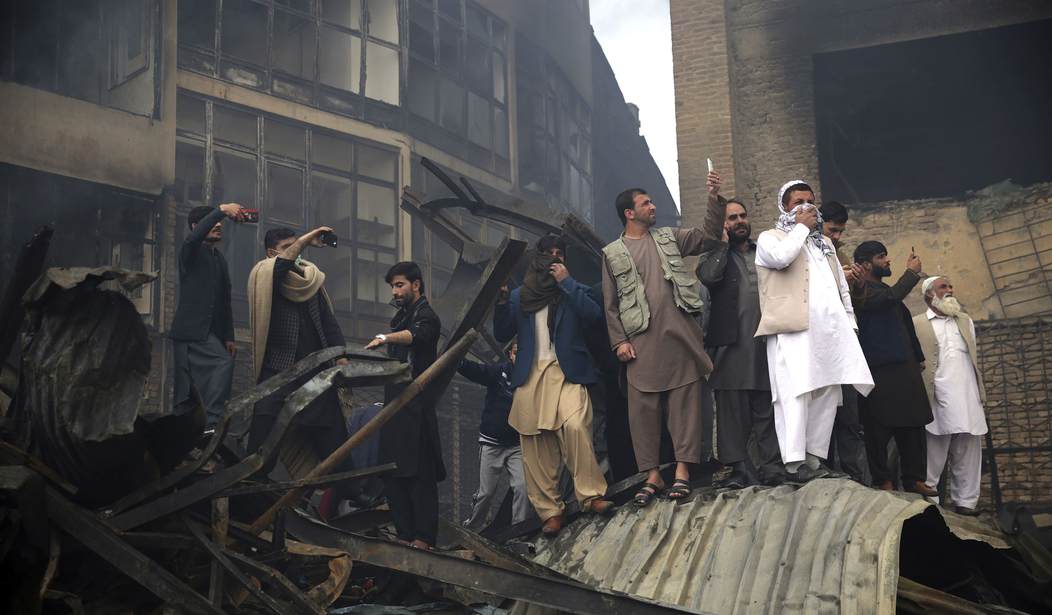“We’re leaving Afghanistan,” I recently asked an Air Force officer in a position to know these things, “So then what?”
Before we get to his answer, let’s look at where we are after 20 years and how we got there.
Let’s be clear about something: The Soviet Union blew up what little order there was in Afghanistan. Their 1979 invasion practically invited in Islamists from all over the world, where they would spend the next 40 years figuring out new ways to make the rubble bounce.
The Soviets couldn’t pacify Afghanistan, not even with methods far more brutal than anything allowed by American rules of engagement.
U.S. forces went in about a dozen years after the last Soviet soldier left. They had a popular mandate — both domestic and international — to topple the Taliban government that had provided safe harbor to al Qaeda.
As you certainly recall, we went in light, just a few special forces troops, intelligence officers, and (of course) ever-present American airpower.
Despite our small footprint, the Taliban was ousted from Kabul in a mere six weeks. It wasn’t until after ousting the Taliban that we went in heavy, looking for more Taliban to kill, and (also of course) al Qaeda and Osama bin Laden.
Heavy fighting has been sporadic and, for American forces, practically nonexistent since the current drawdown began a decade ago. The military of the central Afghan government has proven unequal to the task of keeping order in its own country, ceding ground to the Taliban as quickly as American forces leave it.
For all the grief that the American Left gave to Richard Nixon and South Vietnam, his policy of “Vietnamization” — gradually turning the war effort over to U.S.-trained local army units — worked.
“Afghanistanization” has been an abject failure, and not due to any lack of effort on our part.
On reflection, while writing this piece, it occurs to me that our absence might prove helpful to the Afghanis, in at least one small way. Flooding American dollars into a country that doesn’t produce much aside from opium and violence was a recipe for high-level corruption — even among our own troops and intelligence agencies.
Back to the present.
My well-placed Air Force source explained that we aren’t really leaving Afghanistan on September 11, 2021 — we only have any presence left in two cities, Kabul and Bagram. The rest of the “country” — more on those scare quotes momentarily — has been left by American forces, in stages, for years.
But more importantly, the countryside outside of Kabul and Bagram has been effectively abandoned by Afghanistan’s central government.
The U.S. military’s job is to “kill people and break things,” not to make a country where there has never been one. As I’ve been joking, bitterly, for two decades: Afghanistan isn’t a country; it’s a hole in the map where other countries aren’t.
The fact that Kabul couldn’t establish an effective administration much more than 10 miles outside the capital city, even with 20 years worth of American blood and treasure providing massive assistance, proves the truth contained in my bitter joke.
The problem though is like Jame Gumb, the serial killer in The Silence of the Lambs. The Taliban aren’t about to quit killing Americans (or at least enabling our Islamist murderers) because they’ve gotten a taste for it.
Related: America Has a Moral Obligation to Save Afghans Who Worked Alongside Our Military
“So there are still bad guys over there in need of killing, but once we don’t have a footprint, they’ll be harder to find,” I concluded.
My USAF friend said, “That’s a very concise way to put it.”
Our job will be harder, but we’ll also be providing fewer targets for the Taliban and their undercover friends who hide inside the Kabul government and military.
“It’s time to leave,” I said, and while my Air Force friend couldn’t say so out loud, his face indicated agreement.










